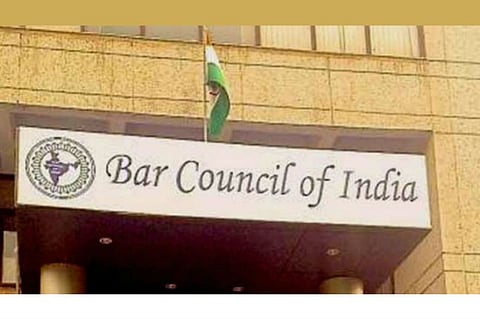

The Bar Council of India (BCI) has notified its Rules "Bar Council of India Legal Education (Post Graduate, Doctoral, Executive, Vocational, Clinical and other Continuing Education) Rules, 2020" which seek to abolish the one-year LLM course which was introduced in India in 2013 by the University Grants Commission (UGC).
The BCI Rules now provide that a post-graduate course in law leading to a Masters degree, in short, LL.M. has to be of two years' duration, spreading over four semesters.
It also provides that the LL.M. course will be restricted to only graduates in law.
Significantly, the BCI Rules state that the BCI will either directly or through its Trust, conduct an All India Common Entrance Test for admission into the Masters Degree course in Law in all Universities and until the PGCETL is introduced, the present system in Universities will be followed.
"Once the BCI introduces PGCETL it shall be mandatory to admit the students from the merit list of the test", the Rules state.
In order to qualify for the test of equivalence of an LL.M. degree obtained from any foreign University, the Masters' Degree in Law course must have been taken only after obtaining an LL.B. degree from any foreign or Indian University which is equivalent to the recognized LL.B. degree in India, the Rules say.
Speaking to The Leaflet, Supreme Court lawyer, Prasanna S said the BCI should stick to its mandate under the Advocates Act in regulating the profession and practice of Advocates.
"Abolition of a particular degree or extension of the duration of coursework for the awarding of a particular degree in higher education in law are matters for the UGC and the respective academic institutions to take a call on", Prasanna added.
The BCI Rules will come into force on the date to be notified by it.
http://theleaflet.in/wp-content/uploads/2021/01/Bar-Council-of-Indias-Rules.pdf